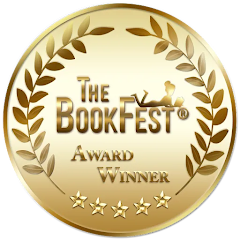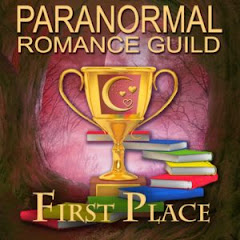What made you decide to be an author? The idea for my first book is
what made me start writing. I had plans to write it immediately but instead I
played around with short stories for a while. A couple of years later, I
finally wrote the first draft of the story and went on from there.
What do you like best about being a writer? What do you like the least?
When I’m writing, I can see scenes in front of me as if they’re real. I
love that feeling as the story moves forward. It takes me to places that I
couldn’t imagine otherwise.
The most frustrating
thing about the writing process is hitting a point in a scene when you’re not
sure where things should go next. One minute the words are flowing and the next
you are stuck.
How do you think your life experiences have prepared you for writing? Growing
up I was lucky enough to live and travel all over the place. That experience
has created a lot of different settings and pictures in my mind that I draw
upon in my writing.
Have you ever felt as if you were being dictated to while you wrote a
book--as if the words came of their own accord? If yes, which book did that
happen with? This happens every time I write, and certainly in the creation
of both Ahriman: The Spirit of
Destruction and The Confluence. I
can’t predict a lot of what happens in my books when I start and the words just
seem to appear.
You’ve written 2 novels and are working on a 3rd. What’s your favorite
time management tip? My favorite time management tactic is to set a minimum
goal for myself that I have to meet. Each day when I’m writing I set a minimum
target of 2000 words. When the target is set, I always meet it. I’ve found that
the concrete goal helps me get around all the distractions of the internet,
phone, and life in general.
Are you a plotter or a pantser, i.e., do you outline your books ahead
of time or are you an “organic” writer? I’m a pantser for sure. When I
start I have a vague idea of what’s going to happen in my story and that’s how
I start. At the end I’m often in a completely different spot, with some
characters more important than I expected and vice versa. I usually outline
when I’m doing my first edit so that I can make sure that the story ties
together well.
If you had one take away
piece of advice for authors, what would it be? Remember that the most
important thing you can do with your time is to write. Don’t give into writer’s
block. Set realistic goals for yourself and stick to them. Don’t waste time
being hard on yourself, just focus on attending to your goals. Remember that
writer’s block is a construct. Everyone procrastinates. It’s part of human
nature. I believe that writer’s block is a form of procrastination. What’s much
worse about it is that we as authors have empowered it by calling it writer’s
block. We’ve made it excusable. I believe the only way to get past it is to sit
down at your computer (or other writing vehicle) and put in the time.
Did music help you find your muse with this book? If yes, which song
did you find yourself going back to over and over again as you wrote? These
days I listen to white noise when I’m writing. I used to do more music, but
nowadays I often find it distracting.
Tell me more about The Confluence.
The story of an Indian
family separated by extenuating circumstances that eventually finds their way
back together.
In 2045, Naina Ranjeeva
writes a letter to recount the journey that led to the adoption of her son
Nikhil.
Decades earlier, she stumbles upon a lead on the location of her aunt, who had disappeared when Naina was just a child. After her aunt's disappearance, Naina's family also completely lost contact with her beloved younger cousin, Nitu. With her aunt's location in hand, Naina takes the first step toward locating her cousin by traveling to the Republic of East Africa to search for her aunt. Her journey eventually leads her to Calcutta where she finds her cousin Nitu and his three-year-old son Nikhil. After two decades apart, the family starts to bridge the gap caused by years of separation, within the backdrop of political turmoil and revolution in East Africa.
Decades earlier, she stumbles upon a lead on the location of her aunt, who had disappeared when Naina was just a child. After her aunt's disappearance, Naina's family also completely lost contact with her beloved younger cousin, Nitu. With her aunt's location in hand, Naina takes the first step toward locating her cousin by traveling to the Republic of East Africa to search for her aunt. Her journey eventually leads her to Calcutta where she finds her cousin Nitu and his three-year-old son Nikhil. After two decades apart, the family starts to bridge the gap caused by years of separation, within the backdrop of political turmoil and revolution in East Africa.
How about an excerpt from The
Confluence?
Memories. Some of them are as distant as the day they occurred, while others reside at the forefront of our minds. I’m not sure why this occurs. I spent three years studying biology in college when I was supposed to be premed, and I never found anyone able to successfully explain the operations of the human mind. My grandfather once told me that being able to forget was humanity’s most important blessing. How else would we be able to forgive? How else could we move forward after experiencing egregious loss? Perhaps being able to forget enriches our existence. Some memories will always evoke certain emotions from our minds, hearts, and souls, but the bite that resonates can lessen over time. While I agree that being able to forget is important, every time I look at you, I have to disagree with him. There can be no disputing it—memory is humanity’s most important blessing.No matter how many years have passed, the first time I saw you still feels like yesterday. Nikhil, you were only three at the time, sitting on your haunches stacking Lego blocks onto the back of a large green toy truck. You were so meticulous and attentive to the last detail, even then. I should have known you would go on to become a civil engineer. Nothing else would have made sense.We never told you about the circumstances that led to that meeting. I can give you all kinds of excuses. Your father and I were worried about how much pain it might cause. We didn’t want to confuse your ideas about your heritage. Mostly, we were just afraid. Afraid that you would think that we loved you less than your sister. Afraid that you might believe that you were not really our son. Afraid that you wouldn’t know how to relate to your sister knowing that you are not blood siblings. Afraid that you would want to seek out your biological parents rather than continue to live in the home that we had built as a family.When we finally told you that you were adopted, you didn’t seem to be too surprised. Perhaps you saw the signs. They are everywhere if you know what to look for. We never did tell you about how your adoption came to be, though. We never told you that you and I do indeed share blood, just not as your parent. We never told you who your biological father was and how much he meant to me. Nikhil, we were always family, even before your adoption.Last week I watched you march across that stage in a cap and gown to receive your PhD. When Kanika told us that you two were expecting, we could not have been more excited. But it made me realize that you are a grown man, and you deserve the truth, especially now. As you bring your own child into the world, you should know every detail I can tell you about your entire past. So here it is, in all of its pain and glory.
Where can readers find more about your stories, books and you on the
Internet?
Website Links:
Website: www.pujaguha.com
Facebook: www.facebook.com/authorpujaguha
Twitter: @GuhaPuja
Buy Links:
The Confluence Amazon: http://bit.ly/ConfluenceIntl
Ahriman: The Spirit of Destruction Amazon: http://bit.ly/ahriman
Puja Guha, thank you so much for being with us here today. I know my
readers will enjoy your work and your interview.













































No comments:
Post a Comment